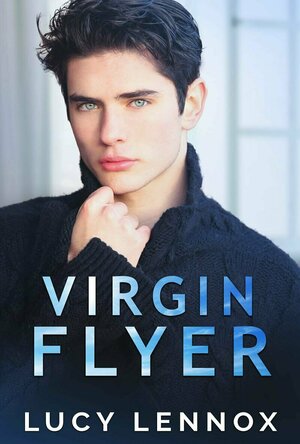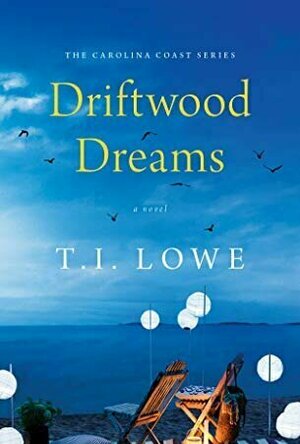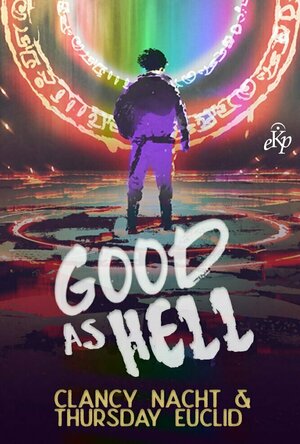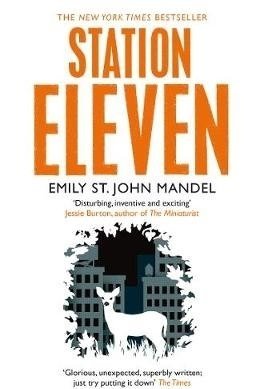Search
Search results
Merissa (13782 KP) rated Virgin Flyer in Books
Mar 2, 2020
Virgin Flyer is a standalone novel by the amazing Lucy Lennox. I found her through her Made Marion series and have never looked back. I love her writing style, the characters, the warmth and depth of the stories... I could go on but I won't. Instead, I will curb my enthusiasm and try to tell you in an orderly fashion just why I enjoyed this book so much.
First things first. Chris is a jerk. He starts off a jerk and *spoiler* he remains one throughout. He has his moments but trust me when I say they are few and far between. Secondly, Teo is sweet! We're talking super-saccharine, jaw-achingly sweet. But the best part is - you love him that way!!! I can't (and don't want to) imagine him any other way. And Jack. Oh, Jack! Now here's someone who could fly me to the moon (if I was the opposite gender, he wasn't with Teo, OH, and if he wasn't also an imaginary character!) The perfect fit for Teo, they just have to see it.
Now - what about the story? It's good. Like, really good. Teo has been pining over Chris for years and just can't see him as the person others see. When Teo eventually decides enough is enough, he puts an ad out there for all to see and is lucky enough to entice Jack. Jack is curious about the ad and, to start with, is more than happy to go along with the requirements. It is months after that they both meet again and then we really fly. There is nothing in this story that is superfluous. Everything moves either the story or the character along and I loved every word of it.
The world-building is certainly clear for all to see, with familial ties playing a big part of the story. The characters behave as you would expect, no 'funny' turns where they act in a way you wouldn't believe. The pacing is smooth and the words themselves will keep you turning the pages without any hesitation.
As an aside, I loved it when Frankfurt and Wiesbaden were mentioned as they are only just down the road from where I live! A one-sit read for me and highly recommended.
* A copy of this book was provided to me with no requirements for a review. I voluntarily read this book, and the comments here are my honest opinion. *
Merissa
Archaeolibrarian - I Dig Good Books!
First things first. Chris is a jerk. He starts off a jerk and *spoiler* he remains one throughout. He has his moments but trust me when I say they are few and far between. Secondly, Teo is sweet! We're talking super-saccharine, jaw-achingly sweet. But the best part is - you love him that way!!! I can't (and don't want to) imagine him any other way. And Jack. Oh, Jack! Now here's someone who could fly me to the moon (if I was the opposite gender, he wasn't with Teo, OH, and if he wasn't also an imaginary character!) The perfect fit for Teo, they just have to see it.
Now - what about the story? It's good. Like, really good. Teo has been pining over Chris for years and just can't see him as the person others see. When Teo eventually decides enough is enough, he puts an ad out there for all to see and is lucky enough to entice Jack. Jack is curious about the ad and, to start with, is more than happy to go along with the requirements. It is months after that they both meet again and then we really fly. There is nothing in this story that is superfluous. Everything moves either the story or the character along and I loved every word of it.
The world-building is certainly clear for all to see, with familial ties playing a big part of the story. The characters behave as you would expect, no 'funny' turns where they act in a way you wouldn't believe. The pacing is smooth and the words themselves will keep you turning the pages without any hesitation.
As an aside, I loved it when Frankfurt and Wiesbaden were mentioned as they are only just down the road from where I live! A one-sit read for me and highly recommended.
* A copy of this book was provided to me with no requirements for a review. I voluntarily read this book, and the comments here are my honest opinion. *
Merissa
Archaeolibrarian - I Dig Good Books!
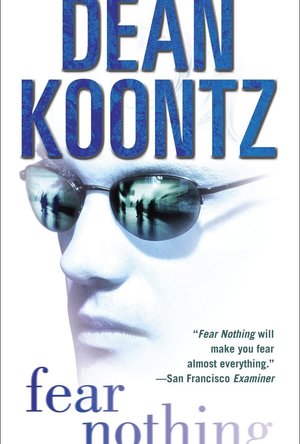
Fear Nothing (Moonlight Bay, #1)
Book
Christopher Snow is the best-known resident of 12,000-strong Moonlight Bay, California. This is...
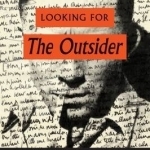
Looking for the Outsider: Albert Camus and the Life of a Literary Classic
Book
The Outsider is a rite of passage for readers around the world. Since its publication in France in...
TravelersWife4Life (31 KP) rated Driftwood Dreams (Carolina Coast #2) in Books
Feb 24, 2021
Driftwood Dreams is the second book in T.I. Lowe’s Carolina Coast Series. The books can be read as standalone’s, but I did see returning characters’ appearances from the previous book; I loved the first book, so I recommend going back to read that one as well. The whole series takes place in a small seaside town off the coast of Carolina (which is one of my favorite places ever) and makes you feel at home right from the first page.
Characters can make or break my interest in the story, and T.I. Lowe did a great job of capturing my interest with both main characters in a very relaxed manner. Josie is a quiet, helpful, and loyal person who is always willing to lend a helping hand. She has high expectations of herself, is a people pleaser and an artist at heart. August is something of a mystery (maybe why I liked him so much) and is a mix of a hard-working and laid-back artist. I thought that his thought process was easy to follow and engaging to read. The chemistry between August and Josie was developed at a fun and interesting pace, and from the beginning, there were hints of the end goal for them. It was a twist on the girl next door type character plot.
I thought that T.I. Lowe did a great job with the storyline movement and that the characters were genuinely relatable. The themes she wove in were great reminders that we only have this one life to live, and we need to live it how God calls us to. Also, we need to remember to follow our dreams and not be afraid of what others might think. T.I. Lowe described island life in a way that made me feel like I had sand under my feet and palm trees growing in my house. I truly loved her vivid descriptions. I think readers who like Debbie Macomber, Rachel Hauck, and Denise Hunter will love this book and the Carolina Coast series.
I give this book 4 out of 5 stars for the relaxing storyline (So made me want to go to the beach), the interesting characters, and for the theme of following your dreams. I recommend picking up this book (or series!) to read while at the beach this summer!
*Reason for 4 instead of 5 stars: I loved the characters, I really did, however, some of their reactions or choices just did not seem believable to me.
**I volunteered to read this book in exchange for my honest opinion. The thoughts and opinions expressed within are my own.
Characters can make or break my interest in the story, and T.I. Lowe did a great job of capturing my interest with both main characters in a very relaxed manner. Josie is a quiet, helpful, and loyal person who is always willing to lend a helping hand. She has high expectations of herself, is a people pleaser and an artist at heart. August is something of a mystery (maybe why I liked him so much) and is a mix of a hard-working and laid-back artist. I thought that his thought process was easy to follow and engaging to read. The chemistry between August and Josie was developed at a fun and interesting pace, and from the beginning, there were hints of the end goal for them. It was a twist on the girl next door type character plot.
I thought that T.I. Lowe did a great job with the storyline movement and that the characters were genuinely relatable. The themes she wove in were great reminders that we only have this one life to live, and we need to live it how God calls us to. Also, we need to remember to follow our dreams and not be afraid of what others might think. T.I. Lowe described island life in a way that made me feel like I had sand under my feet and palm trees growing in my house. I truly loved her vivid descriptions. I think readers who like Debbie Macomber, Rachel Hauck, and Denise Hunter will love this book and the Carolina Coast series.
I give this book 4 out of 5 stars for the relaxing storyline (So made me want to go to the beach), the interesting characters, and for the theme of following your dreams. I recommend picking up this book (or series!) to read while at the beach this summer!
*Reason for 4 instead of 5 stars: I loved the characters, I really did, however, some of their reactions or choices just did not seem believable to me.
**I volunteered to read this book in exchange for my honest opinion. The thoughts and opinions expressed within are my own.

Helicopters Addons for Minecraft PE Pocket Edition
Reference and Catalogs
App
1 CLICK TO INSTALL THE BEST HELICOPTERS ADDONS FOR MINECRAFT PE! This is the first controllable...
Debbiereadsbook (1664 KP) rated Good as Hell in Books
Oct 1, 2020
BLOODY LOVED THIS BOOK, so read the damn book, people!
Independent reviewer for Archaeolibrarian, I was gifted my copy of this book.
At first, I wasn't sure I would like this! It's a bit random, what with flying mattresses and flocks of blue jays in New York, but I'm so bloody glad that I kept going, cos let me tell ya, this book sucked me in, good and proper!
I don't think I've read anything quite like, in a long ass time, and I LOVED this book.
I mean this book twists and turns all over the place. It drags you kicking and screaming along, and then dumps you unceremoniously on your behind, letting you catch up a bit. It throws things at you, and you have the think "what the actual chuffing eck" and then, pages down the line, it explains it all away, and you "chuffing eck" all over again! (I said say, I do believe I swore, profusely, a time or two reading this book, but some sites don't like you to, so chuffing eck will have to do! But it's not a strong enough swear word, you hear me?!?!?!)
And, just as you get over THAT little hissy fit, another comes along and you are reading faster and faster and the next thing, that MASTERPIECE of a plot twist is thrown at you and you just....sit....and...WOW.
I've filed it on my Masterpieces shelf, because of that twist. Cos I did so NOT see that coming, not in a million years!
It's very well told, from both Gem and Sebastian's point of view, in the third person. It's hot and steamy in places, but also sweet as sugar in others. A bit gory in places, but nothing too graffic. Lots of really random stuff that made for an amazing fun read!
I want to rant and rave about this book, but I've deleted most of this review cos of spoilers, and I want YOU to enjoy it as much as I did and I don't think you will, if you see spoilers. So, as much as I wanna rant and rave, you're gonna have to make do with a mini rant.
This is the first book I've read of either of these authors, and I hope it isn't the last, cos, you know, in case you missed it...
I BLOODY LOVED THIS BOOK! So read it, people, read the damn book!
5 full and shiny, totally unexpected, but very much desered, stars
**same worded review will appear elsewhere**
At first, I wasn't sure I would like this! It's a bit random, what with flying mattresses and flocks of blue jays in New York, but I'm so bloody glad that I kept going, cos let me tell ya, this book sucked me in, good and proper!
I don't think I've read anything quite like, in a long ass time, and I LOVED this book.
I mean this book twists and turns all over the place. It drags you kicking and screaming along, and then dumps you unceremoniously on your behind, letting you catch up a bit. It throws things at you, and you have the think "what the actual chuffing eck" and then, pages down the line, it explains it all away, and you "chuffing eck" all over again! (I said say, I do believe I swore, profusely, a time or two reading this book, but some sites don't like you to, so chuffing eck will have to do! But it's not a strong enough swear word, you hear me?!?!?!)
And, just as you get over THAT little hissy fit, another comes along and you are reading faster and faster and the next thing, that MASTERPIECE of a plot twist is thrown at you and you just....sit....and...WOW.
I've filed it on my Masterpieces shelf, because of that twist. Cos I did so NOT see that coming, not in a million years!
It's very well told, from both Gem and Sebastian's point of view, in the third person. It's hot and steamy in places, but also sweet as sugar in others. A bit gory in places, but nothing too graffic. Lots of really random stuff that made for an amazing fun read!
I want to rant and rave about this book, but I've deleted most of this review cos of spoilers, and I want YOU to enjoy it as much as I did and I don't think you will, if you see spoilers. So, as much as I wanna rant and rave, you're gonna have to make do with a mini rant.
This is the first book I've read of either of these authors, and I hope it isn't the last, cos, you know, in case you missed it...
I BLOODY LOVED THIS BOOK! So read it, people, read the damn book!
5 full and shiny, totally unexpected, but very much desered, stars
**same worded review will appear elsewhere**

Box Island - Award Winning Coding Adventure
Education and Games
App
◆ Box Island - Award Winning Coding Adventure for Kids! Box Island is a mobile game that takes...
Debbiereadsbook (1664 KP) rated A Matcha Made in Hell (Boyfriend Café #1) in Books
Sep 15, 2023
really rather good!
Independent reviewer for GRR, I was gifted my copy of this book.
For a long time, I've avoided bully romances. I've no idea why; I did the same wth the step brother romances a while back. But something about THIS book piqued my interest. And I jumped straight in.
Much like I'm gonna do with my review.
I liked this, a lot. I can't quite love though, simply because it's FIRST person, PRESENT tense AND multi point of view. Many kudos to the author for me not realising that til a way in, though, it's just not a preference of mine.
I loved the idea of the Boyfriend Cafe, not so much the reason for it, but I could see this taking off in some places. I loved Albert, in turn, the new hires to the cafe. Rhett is the driving force behind the cafe, which kinda makes his own love life a mockery: there simply isn't one.
Until Spencer Marsh turns up in teh cafe with his girlfriend. Then, things kinda take a kookie turn and one thing leads to another.
But what I especially liked about that meeting, was Rhett was strong against Spencer. Rhett knew he wasn't the same boy he was in high school, and Rhett stood up to Spencer. Not quite in the way I think he was expecting to, but still!
Spencer, in turn, knows he did Rhett wrong at school, and coming to this college was supposed to be his fresh start. His feelings for Rhett whoop him upside the head a little bit out of nowhere, and when Rhett does that thing where he tells Spencer what to do?? Spencer cannot deny Rhett anything.
The feelings kinda creep up and both Rhett AND Spencer, but I loved that. Yes there is early chemistry, that spark burns right through the book, but the FEELINGS creep up on them. Why Spencer was the way he was in school was hardly surprising but that Spencer still tries to impress his dad was. Dad kinda comes good, but not until the epilogue and only on Spencer's terms.
I like this group of people, they all have tales to tell, I hope!
This is, as far as I can see, the first that I have read by this author. I like the way they tell their tales. I love this about reviewing: you come across authors all the time with backlists, that then grace you to read shelf!
4 very good stars
*same worded review will appear elsewhere
For a long time, I've avoided bully romances. I've no idea why; I did the same wth the step brother romances a while back. But something about THIS book piqued my interest. And I jumped straight in.
Much like I'm gonna do with my review.
I liked this, a lot. I can't quite love though, simply because it's FIRST person, PRESENT tense AND multi point of view. Many kudos to the author for me not realising that til a way in, though, it's just not a preference of mine.
I loved the idea of the Boyfriend Cafe, not so much the reason for it, but I could see this taking off in some places. I loved Albert, in turn, the new hires to the cafe. Rhett is the driving force behind the cafe, which kinda makes his own love life a mockery: there simply isn't one.
Until Spencer Marsh turns up in teh cafe with his girlfriend. Then, things kinda take a kookie turn and one thing leads to another.
But what I especially liked about that meeting, was Rhett was strong against Spencer. Rhett knew he wasn't the same boy he was in high school, and Rhett stood up to Spencer. Not quite in the way I think he was expecting to, but still!
Spencer, in turn, knows he did Rhett wrong at school, and coming to this college was supposed to be his fresh start. His feelings for Rhett whoop him upside the head a little bit out of nowhere, and when Rhett does that thing where he tells Spencer what to do?? Spencer cannot deny Rhett anything.
The feelings kinda creep up and both Rhett AND Spencer, but I loved that. Yes there is early chemistry, that spark burns right through the book, but the FEELINGS creep up on them. Why Spencer was the way he was in school was hardly surprising but that Spencer still tries to impress his dad was. Dad kinda comes good, but not until the epilogue and only on Spencer's terms.
I like this group of people, they all have tales to tell, I hope!
This is, as far as I can see, the first that I have read by this author. I like the way they tell their tales. I love this about reviewing: you come across authors all the time with backlists, that then grace you to read shelf!
4 very good stars
*same worded review will appear elsewhere
Debbiereadsbook (1664 KP) rated Sleigh Bells and Second Chances (Love in Mission City #3) in Books
Nov 12, 2024
Ryan's trauma is front and centre, Simeon's is not.
Independent reviewer for Archaeolibrarian, I was gifted my copy of this book.
This is book 3 in the Mission City series. I have not read all of book 1 and book 2 not at all, YET. They can all be read as stand alone, and will only really give you spoilers for the previous book. I WILL get to them, I really enjoyed this one.
Ryan is at The Healing Horses Ranch for some major healing, both physically and mentally. Being in a war zone will do that to a man, add in all his team NOT coming home, and Ryan is a mess. Simeon is the handy man at the ranch and after a fraught first meeting, they begin as friends and develop into more. But Ryan will be leaving soon. Can Simeon give his heart only for Ryan to take it with him?
What I loved MOST about this book, was that while Ryan's trauma was front and centre, Simeon's was not. There were hints and clues dropped along the way but it wasn't til Simeon admitted it, even if to himself, what his trauma was. I wasn't able to put the clues together fast enough. My book brain was whirring, but not in the right direction.
I loved that Simeon felt comfortable around Ryan, right from the start. His stutter was not really a thing for Ryan. Simeon was just Simeon and very quickly Ryan found a safe place with Simeon.
It's fairly midrange angst, and is a SUPER slow burn, but I LOVED that it took til near the very end of the book, for Ryan and Simeon to get to the main event. Oh, its steamy and smexy but the smxey times are not what this book is about. It's super gentle, and sweet and almost warm and fuzzies but due to the emotional aspect.
It's about finding your forever person, when you least expect to, and being accepted into an extended family in a way your own family didn't really did.
Oh, I loved that Ryan's dad came good. Ryan had a complicated relationship with him before he left for the Ukraine, and it took time to repair that. I wasn't sure he would, to be honest.
As I said, not really necessary to read the other books first, but I will go back and read them.
5 full and shiny stars
*same worded review will appear elsewhere
This is book 3 in the Mission City series. I have not read all of book 1 and book 2 not at all, YET. They can all be read as stand alone, and will only really give you spoilers for the previous book. I WILL get to them, I really enjoyed this one.
Ryan is at The Healing Horses Ranch for some major healing, both physically and mentally. Being in a war zone will do that to a man, add in all his team NOT coming home, and Ryan is a mess. Simeon is the handy man at the ranch and after a fraught first meeting, they begin as friends and develop into more. But Ryan will be leaving soon. Can Simeon give his heart only for Ryan to take it with him?
What I loved MOST about this book, was that while Ryan's trauma was front and centre, Simeon's was not. There were hints and clues dropped along the way but it wasn't til Simeon admitted it, even if to himself, what his trauma was. I wasn't able to put the clues together fast enough. My book brain was whirring, but not in the right direction.
I loved that Simeon felt comfortable around Ryan, right from the start. His stutter was not really a thing for Ryan. Simeon was just Simeon and very quickly Ryan found a safe place with Simeon.
It's fairly midrange angst, and is a SUPER slow burn, but I LOVED that it took til near the very end of the book, for Ryan and Simeon to get to the main event. Oh, its steamy and smexy but the smxey times are not what this book is about. It's super gentle, and sweet and almost warm and fuzzies but due to the emotional aspect.
It's about finding your forever person, when you least expect to, and being accepted into an extended family in a way your own family didn't really did.
Oh, I loved that Ryan's dad came good. Ryan had a complicated relationship with him before he left for the Ukraine, and it took time to repair that. I wasn't sure he would, to be honest.
As I said, not really necessary to read the other books first, but I will go back and read them.
5 full and shiny stars
*same worded review will appear elsewhere
Hazel (1853 KP) rated Station Eleven in Books
May 30, 2017
Horrifyingly Plausible
This ARC was provided by the publisher via NetGalley in exchange for an honest review
The dystopian idea of a virus wiping out most of the world’s human inhabitants is not a new concept. It has be done and retold over and over again. Emily St. John Mandel’s invention of the Georgian Flu is no different from these. Brought to Canada and the USA by a passenger on a plane from Russia, the highly contagious virus spreads quickly from person to person, town to town, and once caught you are dead within forty-eight hours.
The difference between Station Eleven and other novels of apocalyptic themes is that the story takes place primarily in two time periods – pre-Georgian Flu and twenty years post-Georgian flu – rather than during the outbreak and the immediate days after (although there are a few scenes written within that timeframe). It is difficult to explain the storyline without giving too much away. Although the death of millions of people is a vital feature, it is the lives of the characters that are important. All the significant characters are in some way linked to one man, Arthur Leander, and, particularly in the case of one individual, a graphic novel titled Station Eleven.
The book opens in Toronto with Arthur, a Hollywood actor, starring in a stage production of King Lear. Despite the quick reaction of trainee paramedic Jeevan, Arthur dies of a heart attack after suddenly collapsing during the forth act. Then suddenly, that same night, the Georgian flu makes its first appearance in Canada. Despite this occurring right at the beginning, it is not the last the reader sees of Arthur. Throughout the story the author returns to Arthur, recounting scenes of his life from acting career to his three ex-wives and only child.
Twenty years after the Georgian flu, Kirsten Raymonde, who starred as a child in the same production of King Lear, is part of the Traveling Symphony: a group of actors and musicians walking from decaying-town-to-town performing a number of Shakespeare plays as they go. With her she carries two Station Eleven comics that Arthur gave her before he died – incidentally written and drawn by his first wife. Most people that the Symphony encounter are accommodating and are trying their best to live in a world of no electricity or health care, but then they meet a man who calls himself the Prophet. Believing that he has been given a duty by God to repopulate the world he preaches to the people telling them that everything happens for a reason, likening the epidemic to Noah’s flood in the Bible. However it soon becomes clear that he is a dangerous character.
In a way it is heartening to imagine that high culture (such as Shakespeare and orchestral music) survives in a world that has been destroyed. Shakespeare was born in a time before all the modern inventions relied upon today, and now, in this novel, it is once again an electricity-less era yet these historical things live on.
One problem with Station Eleven is that it is hard to pinpoint the exact plot line. There is the life story of Arthur Leander, his wives and a close friend. Then there is Kirsten living a completely different life. Nonetheless it is still an incredibly fascinating book. Although it flits between time periods it is thankfully not as confusing as some may imagine it would be.
Even though dystopian novels of this nature have been done before, Station Eleven is definitely a book to read; and through it all it poses the question of how you, the reader, would survive in such a world.
The dystopian idea of a virus wiping out most of the world’s human inhabitants is not a new concept. It has be done and retold over and over again. Emily St. John Mandel’s invention of the Georgian Flu is no different from these. Brought to Canada and the USA by a passenger on a plane from Russia, the highly contagious virus spreads quickly from person to person, town to town, and once caught you are dead within forty-eight hours.
The difference between Station Eleven and other novels of apocalyptic themes is that the story takes place primarily in two time periods – pre-Georgian Flu and twenty years post-Georgian flu – rather than during the outbreak and the immediate days after (although there are a few scenes written within that timeframe). It is difficult to explain the storyline without giving too much away. Although the death of millions of people is a vital feature, it is the lives of the characters that are important. All the significant characters are in some way linked to one man, Arthur Leander, and, particularly in the case of one individual, a graphic novel titled Station Eleven.
The book opens in Toronto with Arthur, a Hollywood actor, starring in a stage production of King Lear. Despite the quick reaction of trainee paramedic Jeevan, Arthur dies of a heart attack after suddenly collapsing during the forth act. Then suddenly, that same night, the Georgian flu makes its first appearance in Canada. Despite this occurring right at the beginning, it is not the last the reader sees of Arthur. Throughout the story the author returns to Arthur, recounting scenes of his life from acting career to his three ex-wives and only child.
Twenty years after the Georgian flu, Kirsten Raymonde, who starred as a child in the same production of King Lear, is part of the Traveling Symphony: a group of actors and musicians walking from decaying-town-to-town performing a number of Shakespeare plays as they go. With her she carries two Station Eleven comics that Arthur gave her before he died – incidentally written and drawn by his first wife. Most people that the Symphony encounter are accommodating and are trying their best to live in a world of no electricity or health care, but then they meet a man who calls himself the Prophet. Believing that he has been given a duty by God to repopulate the world he preaches to the people telling them that everything happens for a reason, likening the epidemic to Noah’s flood in the Bible. However it soon becomes clear that he is a dangerous character.
In a way it is heartening to imagine that high culture (such as Shakespeare and orchestral music) survives in a world that has been destroyed. Shakespeare was born in a time before all the modern inventions relied upon today, and now, in this novel, it is once again an electricity-less era yet these historical things live on.
One problem with Station Eleven is that it is hard to pinpoint the exact plot line. There is the life story of Arthur Leander, his wives and a close friend. Then there is Kirsten living a completely different life. Nonetheless it is still an incredibly fascinating book. Although it flits between time periods it is thankfully not as confusing as some may imagine it would be.
Even though dystopian novels of this nature have been done before, Station Eleven is definitely a book to read; and through it all it poses the question of how you, the reader, would survive in such a world.
